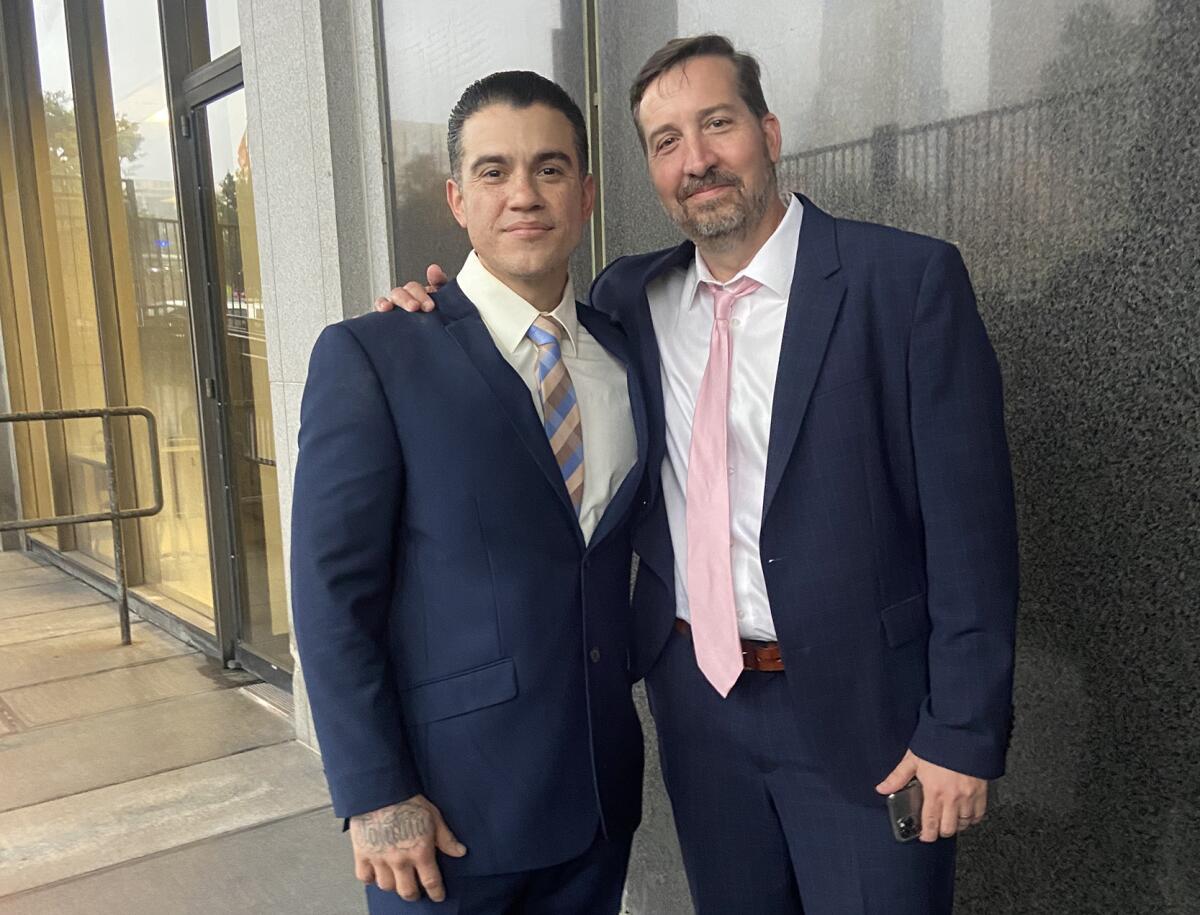
Sentenced to life for a murder he didn’t commit, Jofama Coleman studiously avoided looking at calendars. It was simply too upsetting to contemplate the passage of months, then years, deprived of his freedom and separated from his young daughter.
“One of the ways I got through that tough time was I didn’t even think about the days. Every day was the same,” he said, recalling times when his birthday would pass by without him noticing.
On Thursday, Coleman sat in the front row of a Sacramento courtroom as the official tally of his time behind bars was read: 6,481 days. The state Victims Compensation Board later voted to convert those nearly 18 years into a $907,340 award to Coleman, under a law that gives exonerees $140 for each day of wrongful incarceration.
“My situation either makes you bitter or better,” Coleman told the council with a smile, adding, “even though I’ve been through some very difficult times, I think I’ve ultimately triumphed.”
Two other men also had their requests for compensation approved at Thursday’s hearing. Ronald Velasquez Jr. and Abraham Villalobos were wrongfully convicted in the 2000 murder of a teenager in Downey. The man believed to be the real killer was killed the year after the killing, information that has surfaced during a reinvestigation of the case in recent years. Both men were found innocent at a hearing in March in Los Angeles County Superior Court.

Ronald Velasquez Jr., left, with attorney John Hanusz, after his exoneration in March.
(John Hanusz)
Velasquez, who spent 23 years in prison, received $1.2 million, while Villalobos, who spent more than 15 years in prison, will receive $788,060. He was deported to Mexico after his release. His attorney, Joseph Trigilio of Loyola Law School’s Project for the Innocent, said at the hearing, “This gives him some measure of justice.”
Velasquez said in an interview that he was grateful for the money, but added: “Is it fair? It doesn’t give me back the family members I lost, the time I lost with my family, all the things I missed.”
Exempt individuals do not have to pay state or federal taxes on compensation payments. Nor does it prevent them from filing civil lawsuits against law enforcement for mishandling investigations.
Coleman was convicted of the 2003 drive-by shooting of a teenager in South Los Angeles. As the Times reported earlier this year, he worked for years at the Corcoran Prison library to prove his innocence and later received help from a volunteer, a teacher from Topanga Canyon. Their work led to the exoneration of Coleman and another man convicted of the killing, Abel Soto.
The board had previously awarded Soto $909,720.
Coleman, 41, was incarcerated for 19 years, but he did not receive payment for the entire period because he was also serving time for an unrelated assault charge.
He is enrolled at the University of California, Riverside, and plans to become a lawyer for the wrongfully convicted. His daughter, Jocelyne, who was born after his arrest, is also a student at the university. He said he hopes to use the money to support himself, buy a house and replace the malfunctioning 1988 Corvette he has driven since his release.
While he’s grateful for the compensation, which is not available in many states, Coleman said, “It certainly doesn’t come close. I’ve lost a lot, you know? And I still have to live with the pain of what I’ve been through.”


